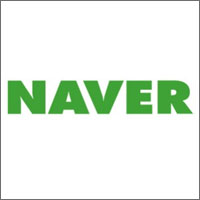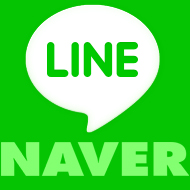- California Assembly OKs highest minimum wage in nation
- S. Korea unveils first graphic cigarette warnings
- US joins with South Korea, Japan in bid to deter North Korea
- LPGA golfer Chun In-gee finally back in action
- S. Korea won’t be top seed in final World Cup qualification round
- US men’s soccer misses 2nd straight Olympics
- US back on track in qualifying with 4-0 win over Guatemala
- High-intensity workout injuries spawn cottage industry
- CDC expands range of Zika mosquitoes into parts of Northeast
- Who knew? ‘The Walking Dead’ is helping families connect
Naver Founder Seeks Gates-style Exit
By Choi Kyong-ae
The founder and largest individual shareholder of Korea’s dominant search engine Naver appears to be following in Bill Gates’ footsteps.Lee Hae-jin, 47,, under siege for being predatory, stepped down as CEO of NHN in 2004 and quit his position as chief strategy officer (CSO) of the venture giant in January 2011 to focus on overseas operations, the Seoul-based company confirmed Tuesday.
“Back then, he made the decision in a bid to seek a future growth engine overseas away from the already saturated domestic market,” an official from the company told The Korea Times by telephone.
In August, NHN was split into two business entities — NHN Entertainment which operates Hangame.com, the leading online game portal in Korea, and Naver Corp. that counts Line Corp. in Japan among its core businesses. Line’s messaging app has grown rapidly to challenge U.S.-based social networking services such as Twitter and Facebook.
“We expect Line’s messaging app will easily draw 300 million users by the end of this year as the number of registered users already hit 200 million in July,” said the Naver official who asked not to be named.
Lee has served as chairman of the board of Naver, formerly known as NHN, since the company’s foundation in 1999 and as chairman of the Japan-based Line Corp. since January last year in a bid to expand the Line messaging services, similar to Kakao Talk in Korea, beyond Asian countries to global markets including the U.S. and Europe.
Lee was not available for comment.
His departure from these top positions have been compared to the step taken by Bill Gates, the co-founder of Microsoft, who resigned from the top managerial job in 2008 and has since kept his chairman post in the U.S. tech giant, while focusing on charitable activities through the foundation which bears his and his wife’s names.
Gates stepped down following a legal dispute with the government that began in 1998. The Department of Justice together with 20 states filed a landmark antitrust lawsuit against Microsoft. An initial ruling ordered the company to be broken up but the two parties reached a settlement in 2001.
Similarly, there is speculation that Lee’s withdrawal from the top positions was due to pressure from the country’s antitrust regulator over the company’s de facto monopoly in the country’s search-engine market.
As of the end of September, Naver accounted for 73 percent of the nation’s search-engine market in terms of personal computers, followed by Daum with 19.6 percent, Google with 4.4 percent and Nate with 1.3 percent.
The Fair Trade Commission reviewed the monopoly issue months earlier when Naver came under fire for its monopolistic control of the local market. But the regulator has yet to issue a ruling, the company said.
The monopolistic structure of the market only harms consumers.
Helped by robust demand for Line’s services, Naver posted sales of 1.09 trillion won ($1 billion) from its overall businesses in Korea and Japan in the January-June period, up from 862.9 billion won a year earlier.
The Line platform is not simply a messaging tool among users because the company sells virtual stickers and game items, and makes money through business partnerships with companies, another Naver official said.
Naver began its service in 1999 as one of several in-house ventures at Samsung SDS, four years after Daum.net launched its portal service in 1995. Multinational portals such as lycos.co.kr and yahoo.co.kr entered the Korean market in the 1990s but local portals later beat them with customer-friendly functions.

















ulyang
October 9, 2013 at 3:47 AM
Is this advertisement, only for NAVER?
At the heading: “The No. 1 Korean-American Community Newspaper ”
means, based on your size?